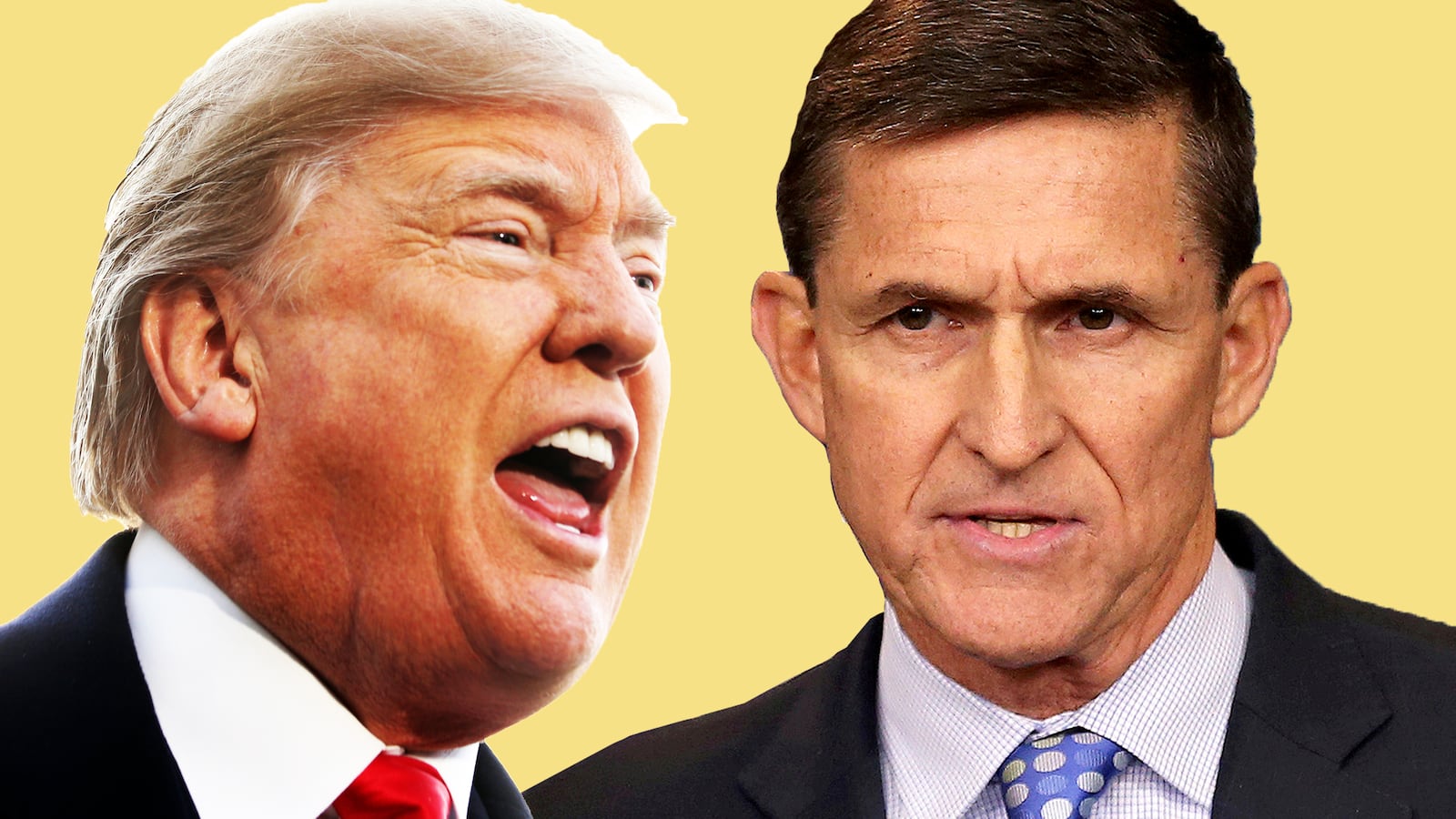President Trump believed that then-national security adviser Michael Flynn probably told the FBI the same lies that he told Vice President Mike Pence.
In journalism, we are taught to avoid using too many words like “believed” and “probably,” but this is the only way to describe the latest spin coming from Donald Trump’s personal lawyer. It is meant to clean up a much less nuanced tweet Trump sent, saying he had to fire Flynn “because he lied to the Vice President and the FBI.”
Trump’s personal lawyer, John Dowd, had already taken the blame for drafting the tweet. But now, according to The Washington Post, Dowd is also saying that “Trump knew generally that Flynn’s account to the FBI and Pence (his claim to have never spoken with then-Russian ambassador Sergey Kislyak about sanctions) were similar…”
Pardon me if I don’t see how this latest revelation helps Dowd’s client. Even with this new explanation, we are left with the impression that Trump assumed Flynn had committed a felony. That didn’t stop Trump from pressuring then-FBI director James Comey to go easy on him—or from firing Comey when he didn’t.
I’m no legal scholar, but the distinction that Trump believed something as opposed to knowing it might not quell the allegations that he obstructed justice.
Perhaps this is why Dowd is now telling Axios that “the president cannot obstruct justice.” (Or, as Richard Nixon said, “When the president does it, that means it’s not illegal.”)
Is it just me, or would Trump be better off if John Dowd quit talking? Honestly, I’m not sure which constitutes the greater potential liability, John Dowd’s comments to the media or Trump’s Twitter feed.
It is, perhaps, worth restating the obvious: This potentially damning information wouldn’t even be known had Donald Trump not voluntarily injected it into the public sphere. This is a pattern.
Federal judges have cited Trump’s tweets about a “Muslim ban” as an excuse to challenge his original travel ban executive order. One Maryland district court cited a particularly offensive Trump tweet when rendering his decision: “Particularly where, in August 2017, President Trump tweeted a statement that a method hostile to Islam — shooting Muslims with bullets dipped in pig’s blood — should be used to deter future terrorism, there is no record of public statements showing any change in the president’s intentions relating to a Muslim ban,” he concluded.
Even if you believe a president should be afforded wide latitude in matters involving national security and immigration, it is obvious that Trump’s tweets complicate his own stated goals. After Trump criticized his own Justice Department for drafting a “watered down” version, George Conway, a respected attorney, an ostensible Trump supporter, and the husband of Kellyanne Conway, tweeted his disapproval.
Conway also told NBC News that “the point cannot be stressed enough that tweets on legal matters seriously undermine the administration’s agenda and president, and those who support him, as I do, need to reinforce that point and not be shy about it.”
Another example: After a terrorist plowed over pedestrians on a bike path in New York City this past Halloween, Trump also took to Twitter. “He killed 8 people, badly injured 12. SHOULD GET DEATH PENALTY!” Trump averred. It has been suggested that this will make it less likely that the suspect will receive the death penalty, because it could be seen as an attempt to influence the court or a jury pool.
That same day, a federal judge temporarily blocked Trump’s transgender military ban, based at least partly on his tweets.
There are plenty of arguments for why Trump should step away from his smartphone, but the most compelling might just be that he inadvertently creates legal problems for the causes he advocates—and for himself.
“I would just say this with the president: There’s an ongoing criminal investigation,” Sen. Lindsey Graham said on Face the Nation. “You tweet and comment regarding ongoing criminal investigations at your own peril.”
This is also sure to spark a debate over whether things admitted to on Twitter constitute an official statement. Dowd is claiming that “A tweet is a shorthand.” But the White House has said that Trump’s tweets constitute “official statements.”
The new “a tweet is just a tweet” paradigm is a predictable argument to make when it becomes clear that the social network has become a net-negative—and yet, everyone knows the principal won’t abandon the medium. The only way to manage it is to suggest that Twitter doesn’t really count as speech.
In any event, this is where we have arrived. Observers have long warned that Trump’s tweets, while sometimes effective, were tremendously risky. Typically, the reasons cited involve public relations gaffes, as well as more serious concerns about roiling financial markets or inadvertently provoking an international incident. But it turns out that the greatest victim of Trump’s stream-of-conscious tweets clearly is Donald Trump himself. There is, at least, a chance that the “live by the tweet/die by the tweet” maxim might hold true—that information Trump voluntarily gave us, via a tweet about Mike Flynn, could be the thing that hands his political opponents their heretofore most potent weapon. Nothing would be more ironic.





